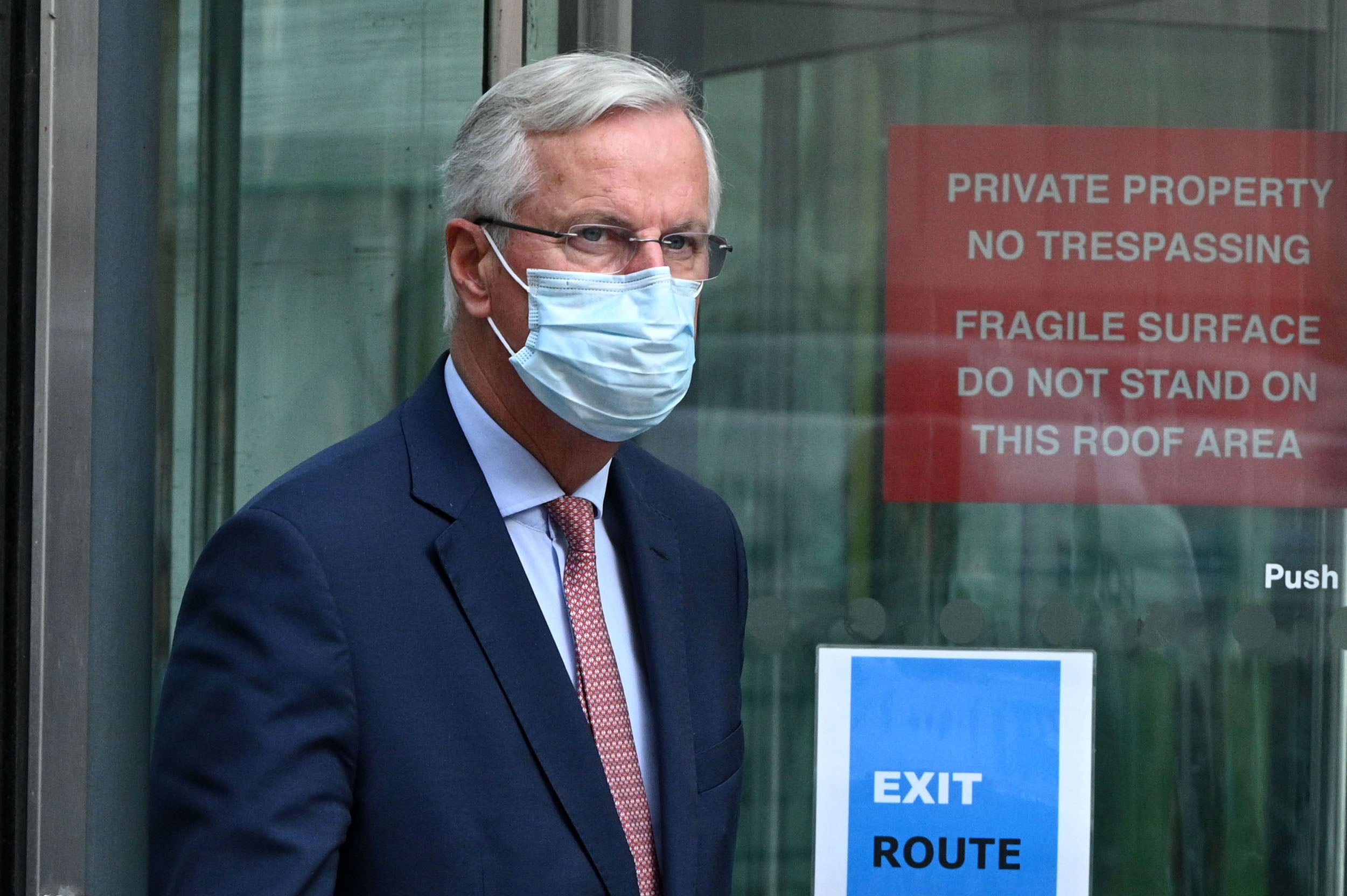It’s confirmed: no-deal Brexit will be worse than we feared
Editorial: The benefits of leaving the EU are at best remote. The timing of this couldn’t be worse

Since the EU referendum four years ago, there has been an unending and mostly sterile debate about what the British people voted for when they made their marginal choice of Brexit. There might be room for argument as to whether the Leave voters would countenance a no-deal Brexit as a last resort. Different commentators had different opinions on what Brexit might mean for the Irish border; and so on.
However, one thing that was never envisaged was the creation of an internal economic border within the UK at the Kent border. Lorries trying to trundle into the Garden of England from London, Sussex and Surrey will require a “Kent access permit”, which will be enforced by the police. Of course, if they are turned away, where will the queue of 7,000 artics park? Bromley High Street? Nutley? Maybe Gatwick airport, currently underemployed.
The most politically prominent of Kent’s residents, Nigel Farage, certainly didn’t campaign for that, it is fair to say. The nation looks forward to his inevitable HGV stunt drive over the Kent border, blue passport in hand and union flag on the truck’s grille.
No access to the town of Deal could be among other less jolly no-deal consequences. The long-term economic damage of the Covid-19 crisis, severe as it will be, will be but a fraction of that inflicted on virtually everyone in Britain by no-deal Brexit, directly and indirectly. Since the financial crash of 2008-2009, the British economy has settled into a rut of sluggish productivity growth and relatively poor economic performance; a combination of coronavirus and Brexit will make the stagnation worse.
The economic arguments are well-rehearsed; but now that no-deal Brexit and a sharp turn to World Trade Organisation terms is almost upon us, the brutal politics of Brexit are emerging once again. The formal deadline for a request to extend the transition period has passed, and the date for its expiry has been enshrined, unwisely, in law. The deadline for a deal is set at 15 October. The latest leaks from the cabinet office and Michael Gove’s long overdue guidance to the hauliers suggest that the worst-case scenario, “reasonable” or not, is becoming more real. Boris Johnson, after all, has called no deal a “good deal”. He might be reluctant to repeat that come New Year’s Day.
The blame game is getting into full swing. According to one leak of an informal remark, the road haulage industry believes it is being “fitted up” for the chaos. Ministers clearly want to build up a narrative that it was the silly truckers who failed to get their act together – their incompetence, not the government’s, will be responsible for the chaos.
There may be some element of truth in that; especially as no-deal Brexit seemed about to happen in March and again in October last year. Any prudent business would be wise to make contingency plans. Yet the bulk of the blame lies firmly with the way successive prime ministers and ministers – all Conservative – have dealt with Brexit. Mr Gove’s long list of things he is now going to do for business only proves what little has been done so far. There is not, as he claims, plenty of time for companies in complex supply chains to adapt.
There will be inevitably more costs, more delays, and fewer jobs as a result of Brexit. Besides, even if some free trade deal were to be bodged together at the last minute and swiftly ratified by the assorted European assemblies and parliaments, it would still exclude the whole of the vital service sector and intergovernmental cooperation on everything from refugees to, yes, fisheries. A free trade deal is in reality not so far removed from no deal in any case.
The benefits of Brexit are at best remote. New trade deals, such as one with Japan, will yield modest results in the short to medium term. The money saved on the Common Agricultural Policy, earmarked supposedly for the NHS, is dwarfed by the costs of Brexit and loss to exports and GDP. If Britain buys cheap food from America or Australia, it will mean less income for British farmers. Dominic Cummings’s dream of British national champions valued at a trillion dollars each will take some time to materialise. Britain will regain sovereignty over its own affairs, but lose all influence within the EU and the wider world. Worse, no-deal Brexit – and the unilateral repudiation of the UK-EU withdrawal agreement – threatens to descend into a cold war with this powerful economic bloc. Perhaps in a decade or two relationships will thaw and there’ll be some rapprochement over the fish and the level playing field. Meantime, no-deal Brexit will be chaos, with the worst possible timing. It would be a bad move at the best of times; inflicting it on the British people in the middle of a pandemic is an act of unprecedented economic self-harm.



Join our commenting forum
Join thought-provoking conversations, follow other Independent readers and see their replies
34Comments